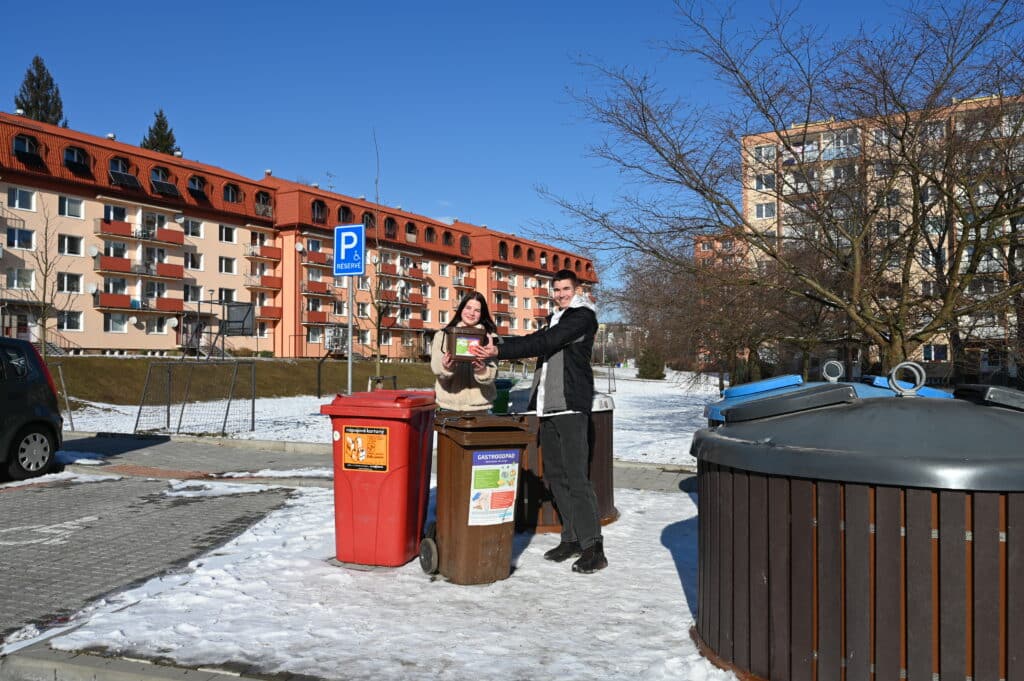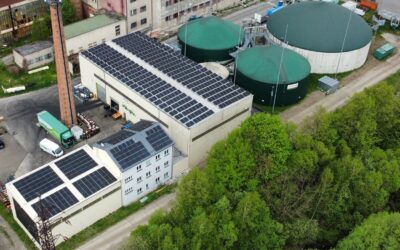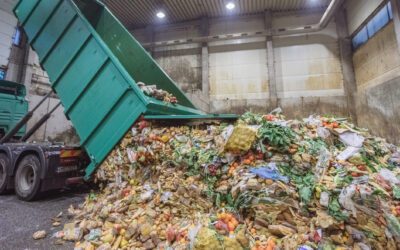Starting this year, cities and municipalities in the Czech Republic have a new binding target: the separation of at least 60% of household waste. A significant portion of this waste is kitchen waste, the collection of which is already being facilitated in nearly thirty Czech cities and municipalities by the “Třídím gastro” project of the Energy financial group (EFG). In Šumperk alone, where the project was launched four years ago, the amount of sorted food waste has increased by 246% since 2021 to more than 178 tons per year. This waste is then processed in a biogas plant in Rapotín into biomethane, electricity, heat, and fertilizer with low emissions.
Up to a third of the contents of black bins in the Czech Republic consists of household kitchen waste, or food waste, which can be used as a renewable source for the production of green electricity, heat, and biomethane (BioCNG) instead of being sent to landfill. At the beginning of 2025, an amendment to the Waste Act came into force with the aim of promoting the efficient use of this waste. In response to the new legislation, municipalities and cities are intensifying their efforts to sort municipal waste. According to the limits set by law, they must ensure that at least 60% of the total amount of municipal waste is sorted this year, 65% in 2030, and at least 70% in 2035. Many of them are therefore participating in the EFG group’s “Třídím gastro” project, which celebrated its 4th anniversary since its launch in Šumperk in May this year.
“In 2021, we became the first city in the Czech Republic to introduce citywide kitchen waste collection as part of the ‘Třídím gastro’ project. Last year, we managed to sort a record 178 tonnes of gastro waste, which is 246% more than in 2021. Thanks to this, we have been able to keep the constantly rising waste collection fee at the same level for the fourth year in a row, i.e. CZK 840 per year. We want to further increase the collection of this waste, and this year we would like to approach the 220-tonne mark. We therefore welcome the fact that the project motivates our residents, for example, by distributing special containers for kitchen waste to households, with the participation of local high school students,” explains Dana Krňávková, head of the Šumperk Environment Department.

Source: City of Šumperk
In March this year, EFG launched an awareness campaign in cooperation with local high school students to raise awareness of the importance of recycling and encourage active participation in kitchen waste sorting in Šumperk. “Since March, we have managed to reach over 1,500 households that have expressed an interest in sorting, and we have provided them with 528 special household collection containers for kitchen waste. At the same time, students distributed over 500 leaflets with practical information on what belongs in these containers. We know from the pilot campaign at the end of 2023 that in places where this awareness campaign took place, the amount of sorted food waste increased by up to 70%. We plan to complete the current campaign in Šumperk in June,” said Ondřej Černý, director of the EFG Logistics division.
Almost thirty towns and municipalities are already part of the tridimgastro.cz project, with over 400 catering facilities, schools, camps, and hospitals in Moravia and Silesia. In 2024, the project managed to collect approximately 3,000 tonnes of kitchen waste, with an increase to almost 5,000 tonnes expected for 2025. The sorted food waste is transported to the EFG Rapotín BPS and EFG Vyškov BPS biogas stations, where it is processed into renewable energy sources such as low-emission biomethane, electricity, and heat. This process contributes to reducing the amount of biological waste sent to landfills and lowering greenhouse gas emissions.

